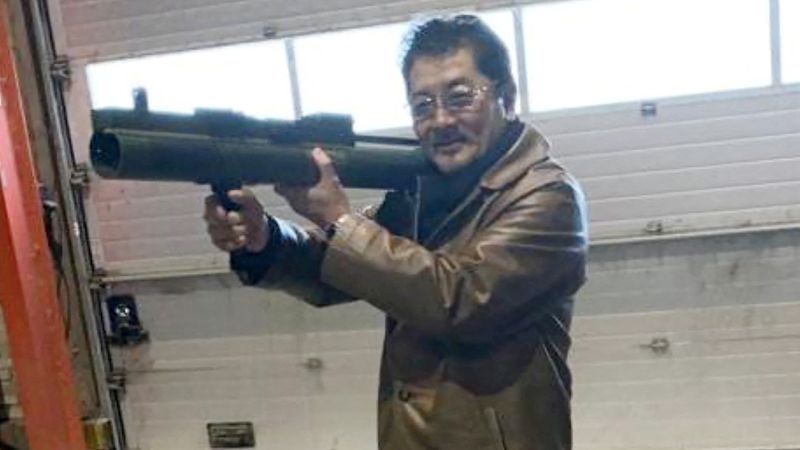Japanese Crime Leader Pleads Guilty in Nuclear Trafficking Case
Takeshi Ebisawa, alleged leader of a Yakuza crime syndicate, pleads guilty to conspiracy charges involving the trafficking of nuclear materials to Iran.

Prosecutors say Ebisawa didn't know he was communicating in 2021 and 2022 with a confidential source for the Drug Enforcement Administration along with the source's associate, who posed as an Iranian general.
Japanese crime leader pleads guilty to conspiring to sell nuclear materials to Iran
 NPR·4M·ReliableThis source consistently reports facts with minimal bias, demonstrating high-quality journalism and accuracy.CenterThis outlet is balanced or reflects centrist views.
NPR·4M·ReliableThis source consistently reports facts with minimal bias, demonstrating high-quality journalism and accuracy.CenterThis outlet is balanced or reflects centrist views.
DEA Administrator Anne Milgram said in a release that the prosecution demonstrated the DEA's “unparalleled ability to dismantle the world's most dangerous criminal networks.” She said the investigation “exposed the shocking depths of international organized crime from trafficking nuclear materials to fueling the narcotics trade and arming violent insurgents.”
Leader of Japan crime group pleads guilty to conspiring to traffic nuclear materials
 ABC News·4M·ReliableThis source consistently reports facts with minimal bias, demonstrating high-quality journalism and accuracy.CenterThis outlet is balanced or reflects centrist views.
ABC News·4M·ReliableThis source consistently reports facts with minimal bias, demonstrating high-quality journalism and accuracy.CenterThis outlet is balanced or reflects centrist views.
As he admitted in court today, Takeshi Ebisawa brazenly trafficked nuclear material, including weapons-grade plutonium, out of Burma.
Alleged Yakuza leader admits trafficking nuclear materials from Myanmar
 CNN·4M·ReliableThis source consistently reports facts with minimal bias, demonstrating high-quality journalism and accuracy.Leans LeftThis outlet slightly leans left.
CNN·4M·ReliableThis source consistently reports facts with minimal bias, demonstrating high-quality journalism and accuracy.Leans LeftThis outlet slightly leans left.
Summary
Takeshi Ebisawa, the purported leader of a Japan-based crime syndicate, pleaded guilty to conspiracy to traffic nuclear materials, including weapons-grade plutonium, from Myanmar. His dealings included narcotics trafficking and arms smuggling in an undercover DEA operation. He faces a minimum of 10 years, with sentencing set for April 9. Ebisawa unwittingly engaged with a DEA informant, believing he was selling to regimes interested in nuclear armament. The case highlights the expansive reach of international organized crime involving nuclear proliferation, leading to serious national security concerns.
Perspectives
No center-leaning sources available for this story.